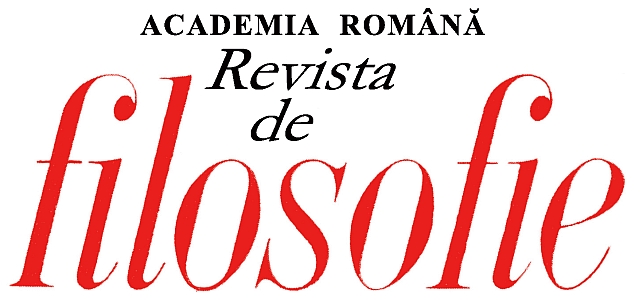CĂRŢILE BLAGIENE ALE CUNOAŞTERII
ŞI RECEPTAREA LOR DE CRITICA FILOSOFICĂ
Lucian Blaga’s Books about Cognition and their Reception by Philosophical
Criticism.
Author(s): Eugeniu NistorSubject(s): Epistemology
Published by: Editura Academiei Române
Keywords: trilogy; philosophical consciousness; dogmatic aeon; transfigured paradox; Luciferian knowledge; transcendent censorship; experiment;
Summary/Abstract: Works about cognition in Lucian Blaga’s system of thought originallyconstituted a trilogy, according to his “Trilogy of Cognition” (1943), but in 1959 heproceeded to a new restructuring, by adding two more works, one as an opening, andthe other as a “supplement”, thus resulting in a “pentalogy” that includes: ConcerningPhilosophical Consciousness (lithographed manuscript from 1947, published in 1974);The Dogmatic Aeon (1931); The Luciferian Knowledge (1933); The TranscendentalCensorship (1934); Supplement: Experiment and Mathematical Spirit (manuscript,published in 1969). Thus, after reordering philosophical ideas from antiquity to thepresent day and stirring consciences, Lucian Blaga declares himself the adept of thedogmatic method of work, by resorting to the deepening of human knowledge, byestablishing a new line of decryption of the mysteries of the world: the Luciferianknowledge. The next step is to uncover the mechanisms of the transcendental brakes ofthe Great Anonymous, who stops and censures all access to the mystery of humanthought, leaving though a door open to epistemological perspectives and cultural-artisticrevelations. Soon as they came out, Blaga’s books about cognition were subjected tophilosophical criticism, being sometimes praised and sometimes suffering criticalattacks and qualitative mutations from their commentators, more or les pertinent.
Journal: Revista de filosofie
- Issue Year: LXVI/2019
- Issue No: 2
- Page Range: 166-186
- Page Count: 21
- Language: Romanian, Moldavian

